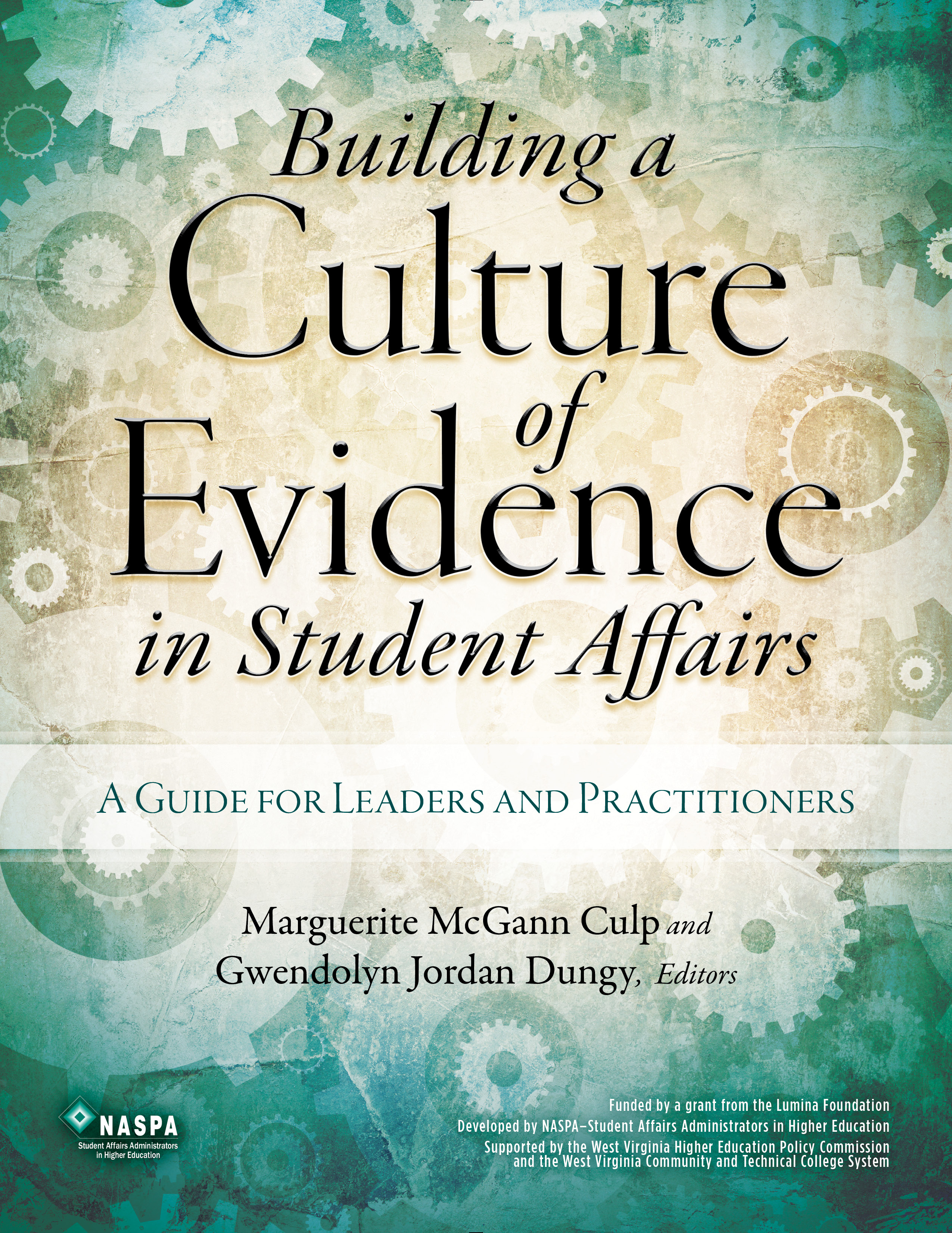
Building a Culture of Evidence in Student Affairs: A Guide for Leaders and Practitioners
Supporting the Profession Assessment, Evaluation, and Research
August 20, 2013
Developed by experienced student affairs leaders who have successfully implemented cultures of evidence on their campuses, this tutorial offers practical advice and concrete examples of how to plan, create, and maintain effective assessment initiatives. The authors discuss culture of evidence models from a variety of institutions and provide:
- Tools to assess a student affairs division's readiness to become involved in assessment initiatives, to identify the infrastructure already in place within the institution, and to support a culture of evidence
- An overview of assessment approaches and methods to measure the effectiveness of programs and services and provide data that meet a variety of stakeholder needs
- Recommendations to assist senior student affairs officers to prepare their leadership teams to both lead and manage culture of evidence initiatives
- Tips for writing effective rubrics and using a variety of techniques to conduct and apply assessments
- Suggestions for using CAS standards in designing and implementing culture of evidence initiatives
- Strategies for leveraging the culture of evidence process to help faculty become more involved in nonclassroom support programs and services
- Examples of how colleges and universities are building cultures of evidence in student affairs
- PowerPoint presentations that explore culture of evidence topics and include activities to guide implementation
Building a Culture of Evidence in Student Affairs demonstrates clearly that moving from a culture of good intentions to a culture of evidence strengthens student affairs by documenting the significant contributions the profession makes to student access, persistence, and completion. The tutorial addresses the important role that building a culture of evidence plays in encouraging student affairs professionals of all levels to enter and remain in a continuous learning mode that increases their ability to identify and respond quickly to the changing realities on their campuses.
Praise for Building a Culture of Evidence in Student Affairs
The West Virginia Higher Education Policy Commission and the state’s higher education system advocate for a college-going culture that provides a high-quality educational experience while encouraging and supporting the success of all students. Institutions should continually examine innovative ways to better serve students—both traditional and nontraditional—during all stages of their educational journeys. The proven methods included in this resource will better inform system and institutional staff of the performance indicators, research, and tools necessary to thoroughly and passionately support the programs and services that most positively impact students and lead to their successful completion through the educational pipeline.
Paul L. Hill, chancellor, West Virginia Higher Education Policy Commission
The West Virginia Community and Technical College System is committed to increasing retention and graduation rates, providing affordable access to higher education, and reaching out to adult students through innovative programming. Student affairs professionals are essential in providing students with the support necessary to succeed and in turn achieve these systemwide goals. However, the key is understanding what programs and services are effective. This guide provides practical resources and tips and concrete examples on how to move beyond a culture of good intentions to a culture of evidence in student affairs.
James L. Skidmore, chancellor, West Virginia Council for Community and Technical College Education
This easy to read tutorial offers practical tips and tools for building cultures of evidence in student affairs for professionals of all levels. Understanding what questions to ask, what performance indicators to consider, and what student affairs services and programs work is crucial to expanding and strengthening efforts to increase persistence and completion rates and the ultimate goal of doing what is best for students.
Sarah E. Beasley, director of statewide academic initiatives, West Virginia Higher Education Policy Commission